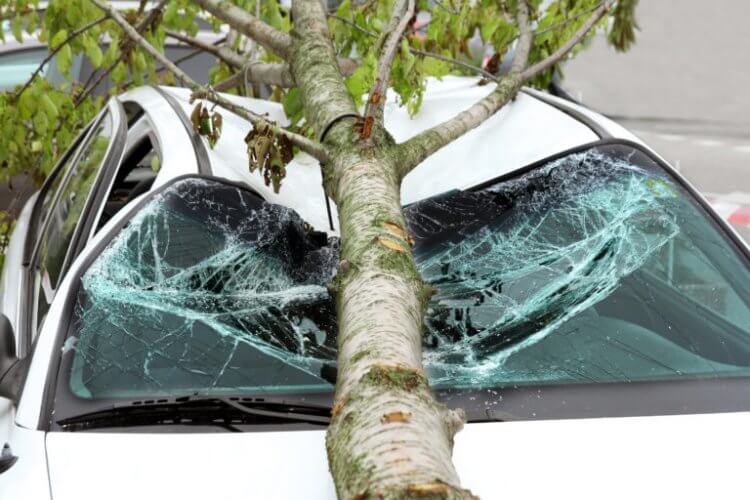Imagine that a storm hits overnight and the next morning you find that a tree fell on your car. Not only would this ruin your morning, it could also wreak havoc on your bank account if you don’t have adequate protection to repair or replace your vehicle. In this situation, comprehensive coverage would take care of everything.
What does comprehensive insurance cover?
Any damage to your car that was not caused by a collision with another vehicle. Examples of this include natural disasters such as hurricanes or earthquakes, fires, vandalism, theft, falling objects, among others.
How does comprehensive coverage work?
The example of the fallen tree on your car is a good indicator of how comprehensive coverage would protect you. If the car sustains $6,000 in damage, it’s best to file a claim with your insurance company.
The comprehensive coverage of your policy will have a limit and a deductible. The first is the maximum amount your insurance company will pay for a claim. This amount is usually the real value of your car, which is calculated by subtracting depreciation from its total value. The deductible is the amount you will pay out of pocket when you file a claim, it can vary depending on the policy you buy.
Taking the above into account, if the actual value of your vehicle is $10,000 and you have a $500 deductible, you will have to pay that $500 out of pocket and your insurance company will pay the remaining $5,500 to cover the $6,000 of damage caused by the crash. tree in your car
Comprehensive vs. shock
While the word “comprehensive” means total, comprehensive, or all-inclusive, in this case it does not mean that auto insurance offers comprehensive coverage. To get it, you need to add collision insurance to your policy. This coverage will help pay for any damage resulting from a collision with another vehicle, no matter who was at fault. In contrast, comprehensive insurance will cover damage to your car caused by incidents other than collisions that are beyond your control.
Should you include comprehensive coverage in your policy?
If you bought or leased a car, comprehensive insurance may be required during the loan or lease. If you already own or have paid off your vehicle, comprehensive coverage will be optional.
If you’re considering buying comprehensive insurance, a good place to start is to request quotes to find out how much it would cost you to maintain coverage per year. When you do, it will compare the cost of the policy with how much it would cost you to buy a new car if yours is unusable due to a heavy hailstorm or if a deer crashes into your vehicle, since both situations would be covered by comprehensive insurance.
Do collision and comprehensive insurance have to be purchased together?
While most drivers choose to have both, there are times when you can purchase just one. For example, if a car is sitting idle, it would make sense to protect it only with comprehensive coverage. However, when a vehicle is financed or leased, both coverages are required.
Incidents that cause damage to your vehicle can be frustrating, but it’s much more annoying to have to pay a lot of money for an accident totally out of your control. Consider including comprehensive coverage in your policy to protect your pocket from any unexpected accident that could damage your car.

